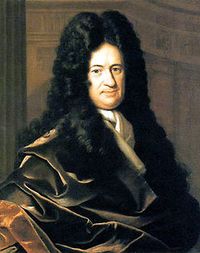حل عمل الشيطان
| جزء من سلسلة عن |
| الروحانية |
|---|
| المؤثرات |
| أبحاث |
حل عمل الشيطان أو الثيوديسيا Theodicy هو محاولة إيجاد حل لمشكلة الشر.[1]
وحل عمل الشيطان هو فرع من اللاهوت والفلسفة يشرح سلوك الإله.[2][3][4] ويمكن وصف الثيوديسيا كذلك على أنها محاولة للتوفيق بين الإيمان بإله والوجود المعتقد للشيطان.[5]
. . . . . . . . . . . . . . . . . . . . . . . . . . . . . . . . . . . . . . . . . . . . . . . . . . . . . . . . . . . . . . . . . . . . . . . . . . . . . . . . . . . . . . . . . . . . . . . . . . . . . . . . . . . . . . . . . . . . . . . . . . . . . . . . . . . . . . . . . . . . . . . . . . . . . . . . . . . . . . . . . . . . . . . .
أصل التعبير

كلمة theodicy تأتي من اليونانية θεός (ثيوس، "إله") و δίκη (ديكـِه، "عدالة")، لتعني حرفياً "عدالة الإله،" بالرغم من أن تعبيراً أكثر مناسبةً قد يكون "تبرير إله" أو "تبرير الإله"[6]. التعبير صاغه في 1710 الفيلسوف الألماني گوتفريد لايبنتس في عمل عنوانه Essais de Théodicée sur la bonté de Dieu, la liberté de l'homme et l'origine du mal ("مقالات ثيوديسية في رحمة الإله، وحرية إرادة الإنسان وأصل الشر").
إپيقور
إپيقور يـُنسب إليه، عموماً، فضل أول شرح لمشكلة الشر بطريقة منطقية. ديڤد هيوم في كتابه محاورات حول الدين الطبيعي (1779) يذكر إپيقور حين ينقل نقاشه كسلسلة من الأسئلة:
"هل هو يريد أن يمنع الشر، ولكنه غير قادر؟ Then is he impotent. هل هو قادر، ولكن غير راغب؟ Then is he malevolent. هل هو قادر وراغب؟ من أين إذن يأني الشر؟[7]"
ونتيجة لتحقيق إبيقور في مشكلة الشر، فإنها أحياناً تسمى "المتناقضة الإپيقورية" أو "أحجية إپيقور."
"Either God wants to abolish evil, and cannot; or he can, but does not want to. If he wants to, but cannot, he is impotent. If he can, but does not want to, he is wicked. If God can abolish evil, and God really wants to do it, why is there evil in the world?" — Epicurus, as quoted in 2000 Years of Disbelief [8]
انظر أيضاً
- مشكلة الشر
- Is-ought problem
- Fallacy of necessity
- أفضل العوالم الممكنة
- Trilemma
- Reprobation
- Irenaean theodicy
- Post-monotheism
الهامش
- ^
- Encyclopedia Britannica: "(from Greek theos, “god”; dikē, “justice”), explanation of why a perfectly good, almighty, and all-knowing God permits evil."
- Catholic encyclopedia: "Imitating the example of Leibniz other philosophers now called their treatises on the problem of evil "theodicies".
- Random House Dictionary: "a vindication of the divine attributes, particularly holiness and justice, in establishing or allowing the existence of physical and moral evil."
- The American Heritage Dictionary of the English Language, Fourth Edition: "A vindication of God's goodness and justice in the face of the existence of evil."
- Merriam-Webster Online Dictionary: "defense of God's goodness and omnipotence in view of the existence of evil"
- ^ Concise Oxford English Dictionary, entry on Theodicy
- ^ Otis, Brooks, اوڤيد كشاعر ملحمي (1970), page 132
- ^ Alvis, John, Divine purpose and heroic response in Homer and Virgil, page 176
- ^ Encyclopedia Britannica: Theodicy
- ^ Concise English Dictionary, entry on Theodicy
- ^ Hume, David. "Dialogues Concerning Natural Religion". Project Gutenberg. Retrieved 2008-08-15.
- ^ النقاش المنصص قد يكون قد نـُسـِب خطأ إلى إپيقور، من لاكتانتيوس، الذي، من منظوره المسيحي، اعتبر إپيقور ملحداً. وحسب مارك جوسف لاريمور، (2001)، مشكلة الشر، الصفحات xix-xxi. وايلي-بلاكويل. وحسب راينهولد گلاي، فقد استقر الرأي على أن نقاش الثوديسيا يتأتى من مصدر أكاديمي ليس فقط غير إپيقوري، ولكن أيضاً مضاد للإپيقورية. Reinhold F. Glei, Et invidus et inbecillus. Das angebliche Epikurfragment bei Laktanz, De ira dei 13,20-21, in: Vigiliae Christianae 42 (1988), p. 47-58
للاستزادة
- Dostoevsky, Fyodor. The Brothers Karamazov, 1881. Chapters "Rebellion" and "The Grand Inquisitor"
- Hick, John. Evil and the God of Love, 1966. (Palgrave Macmillan, Rev. ed., 2007)
- Ormsby, Eric. Theodicy in Islamic Thought (Princeton University Press, 1984)
- Stewart, Matthew. The Courtier and the Heretic: Leibniz, Spinoza and the Fate of God in the Modern World (W.W. Norton, 2005)
وصلات خارجية
- Stanford Encyclopedia: Problem of Evil
- Stanford Encyclopedia: Leibniz on the Problem of Evil
- Does God Really Care About Us? If so, why does he permit suffering?
- Problem of Evil Blog
- Evidential Arguments from Evil
- Project Gutenburg: Leibniz, Theodicy (English translation)
- Theodicy: the problem of Evil
- Theodicy in the Catholic Encyclopedia
- Dr. Barry L. Whitney, preeminent figure on theodicies
- A Rational and Biblical Approach to the Problem of Hell (A Calvinist Theodicy)
- A Jump Theodicy
- Faith in the Face of Evil, Appendix VI of Kant's Critical Religion, by Stephen Palmquist.
